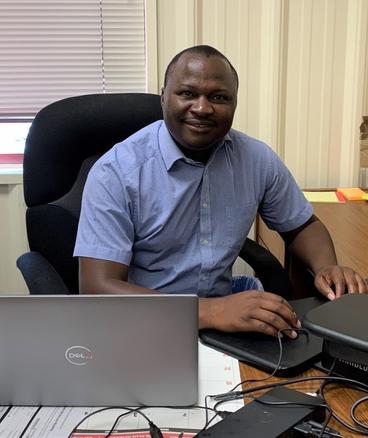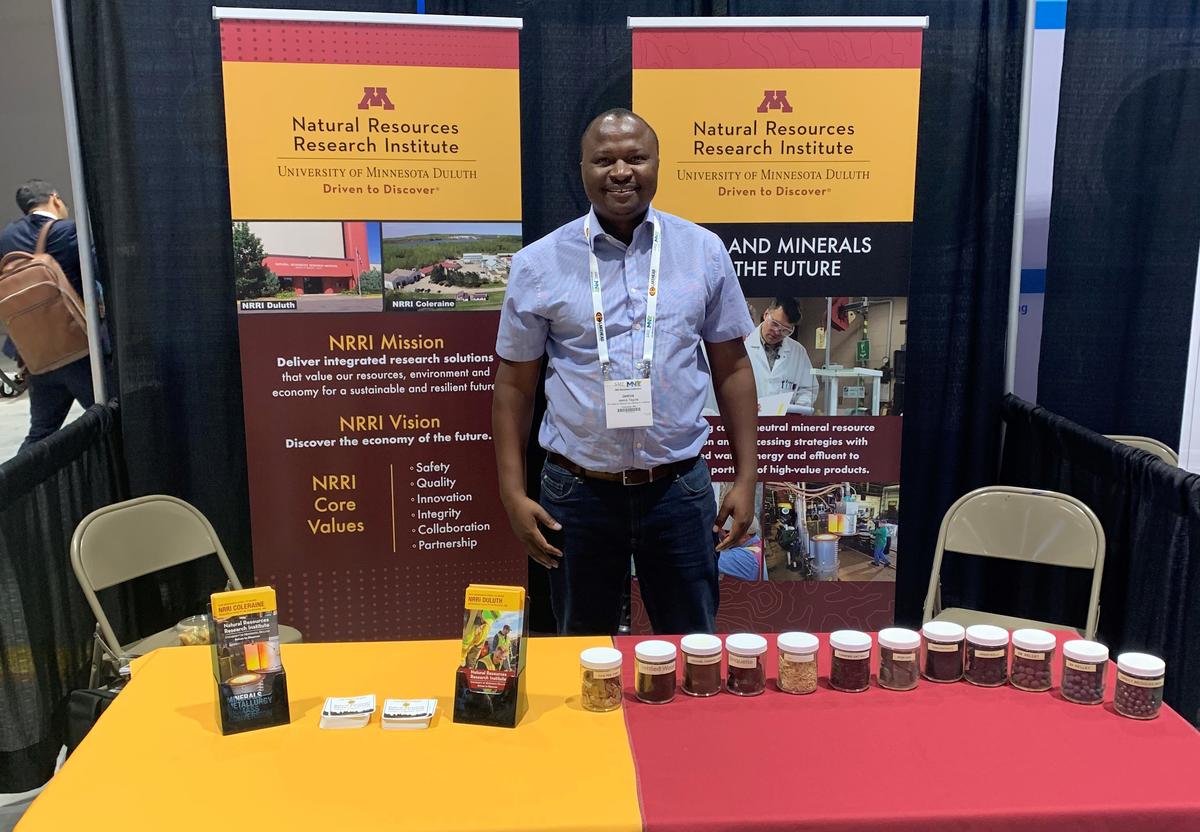From balmy Johannesburg, South Africa (with temperatures in the 80s) to Duluth, Minnesota, in a well-below zero January blizzard. Jestos Taguta was committed to a career move that brought him to NRRI earlier this year. But he wasn’t quite sure what was in store for him, his wife and three children.
“We never imagined that our settling in northern Minnesota was going to be easy and seamless, but thanks to the amazing support of the NRRI staff, we are settled into our new home,” said Taguta. “My boys were excited to see and experience snow for the first time. They engaged in snowball fights and quickly tried winter sports, like ice hockey.”
Minerals Expertise
Bringing an impressive minerals processing and metallurgy skillset, Taguta is now a Principal Research & Development Engineer at NRRI’s Coleraine facility. He brings specialist expertise in the processing of non-ferrous metals. His previous position was as Flotation Director at a large global company, Eriez, a global leader in separation technologies. He was also Commissioning Manager for the world’s first coarse particle recovery plant in the platinum group minerals (PGMs) processing industry.

Prior to that, Jestos held very senior roles at Mintek, South Africa. He received a doctoral degree in Chemical Engineering specializing in Minerals Processing from University of Cape Town in South Africa in 2019.
At NRRI, Taguta hit the ground running, pioneering and leading the Advanced Process Development Program in NRRI’s Minerals and Metallurgy Group. He is focused on developing sustainable, carbon-neutral strategies and processes for mineral resource extraction with reduced water and energy consumption.
“Minnesota is endowed with critical minerals like copper, nickel, cobalt, precious metals and rare earth elements,” said Taguta. “And the demand for these minerals is increasing. I am helping NRRI play a lead role in developing innovative and safe solutions to remove the barrier to the commercial use of these critical minerals deposits.”
Water Everywhere
Minnesota hosts 10% of the world’s freshwater. Mining activities impact water resources, so one of Taguta’s research areas is designing zero effluent discharge concentrators in mineral processing plants. To do this, he will be collaborating with NRRI’s Water Research Group in areas of process water chemistry characterization. He’ll also explore targeted treatment of process water to remove or reduce the concentration of ions that are detrimental to the recovery of valuable minerals. Taguta is also interested in reclaiming mine impacted waters by using them as a process medium in mineral processing.
“Challenges faced by the mining industry today require multidisciplinary and integrated research solutions,” said Taguta. “I was attracted to NRRI because of its integrated research model.”
And of course, Taguta is collaborating with NRRI’s Geology and Minerals Opportunity Group and will seek out several university departments to design and develop equipment and chemistry solutions for mineral processing.
Off Hours
Settling his family into a new house and getting to know the Grand Rapids community is taking up a lot of Taguta’s time these days. But he is grateful for the warm welcome. He also enjoys going to the gym and attending church with his family.
